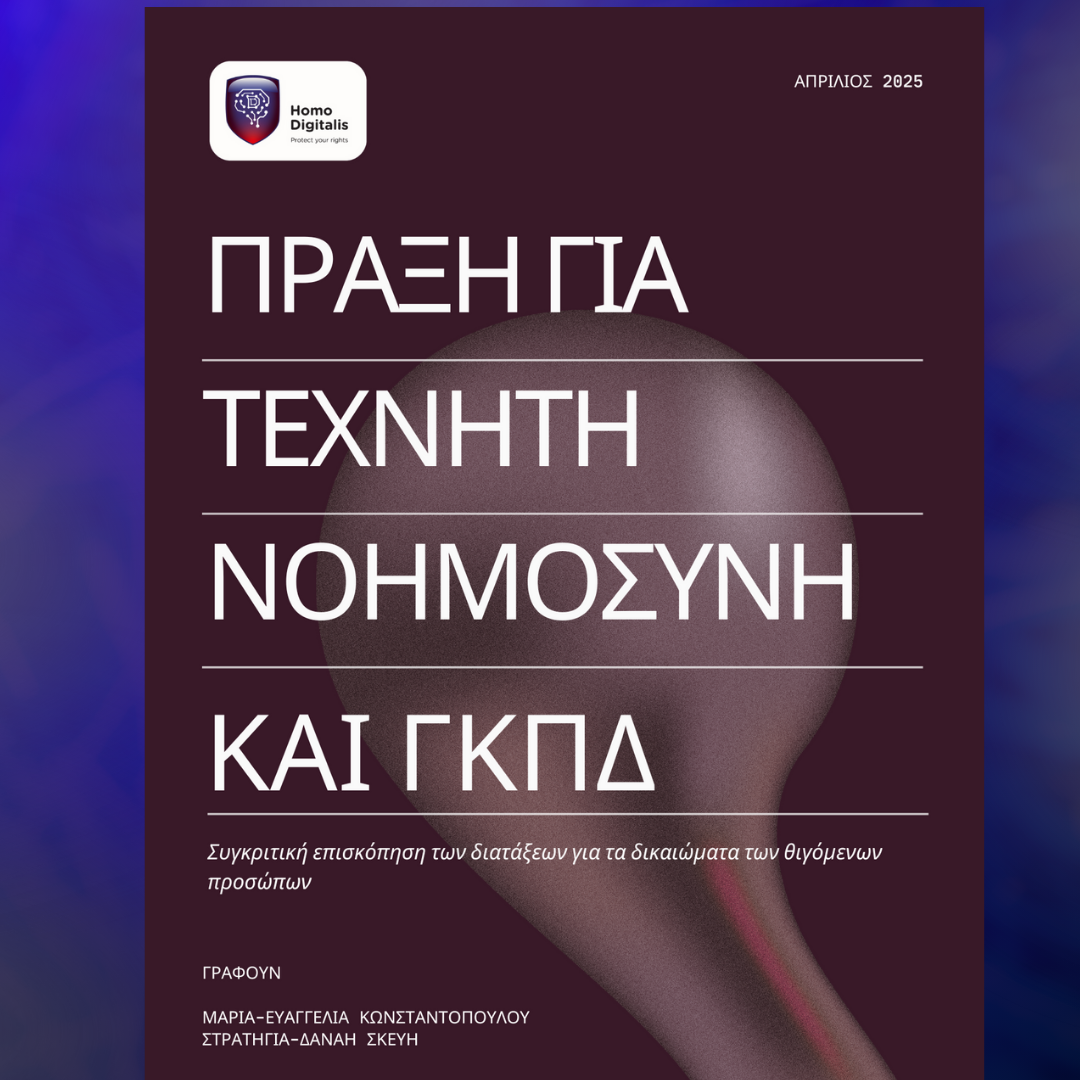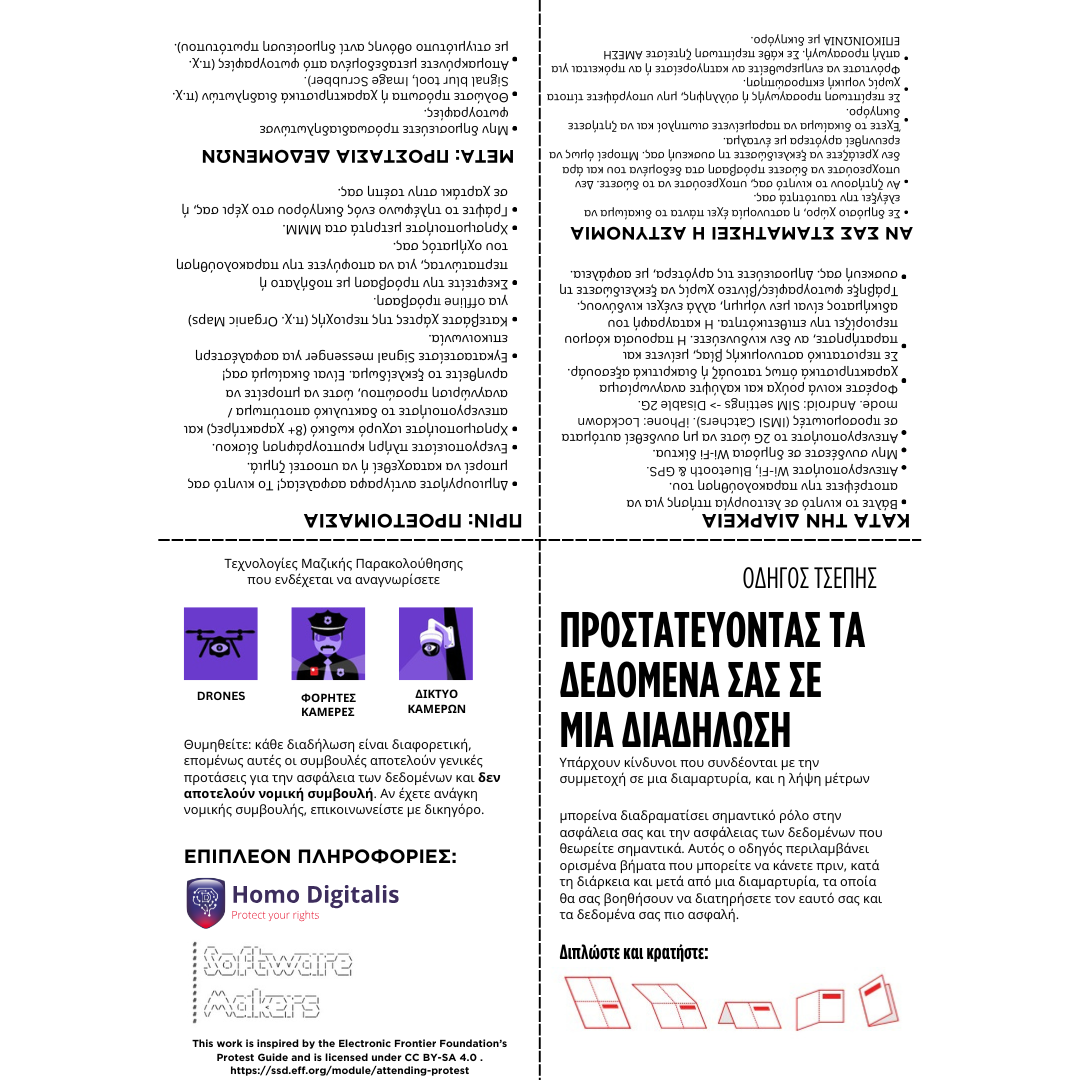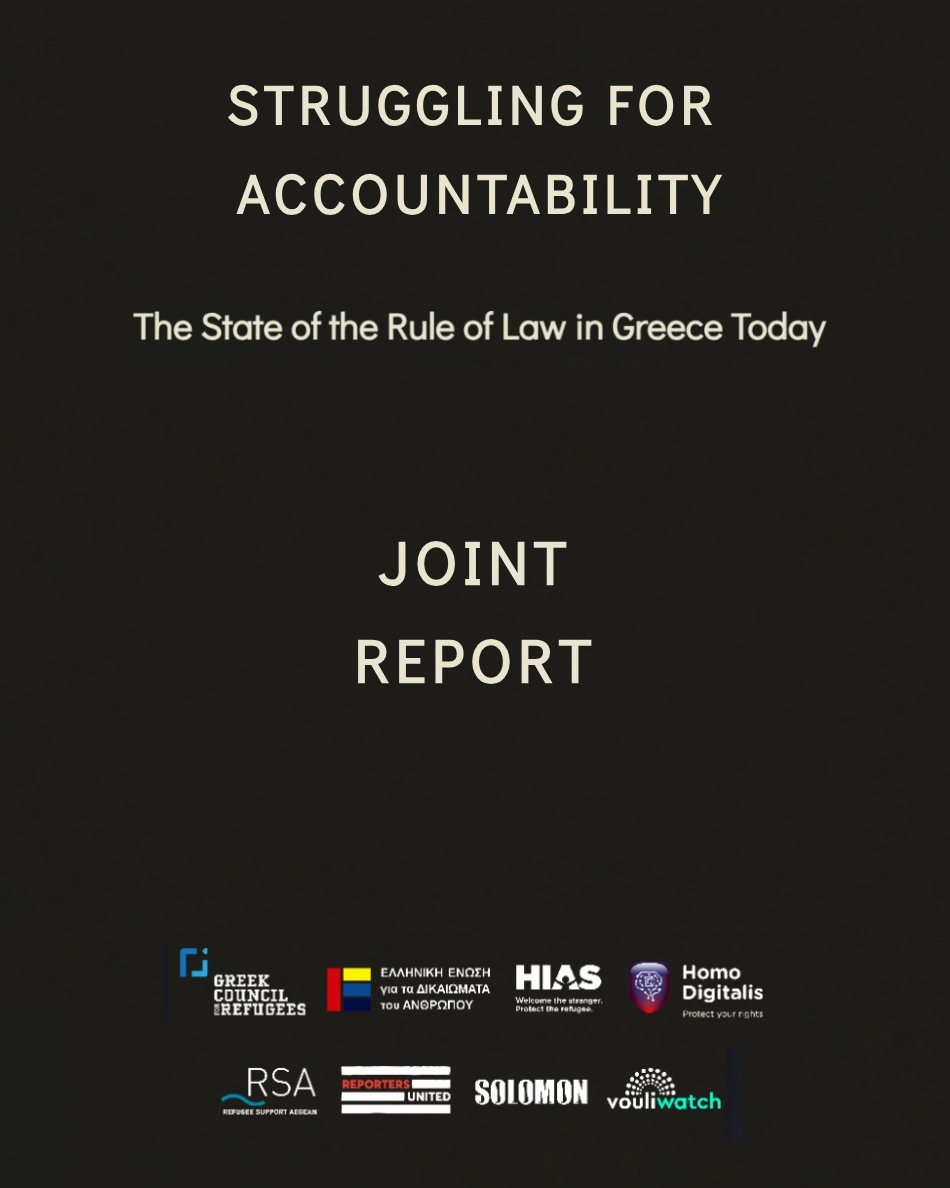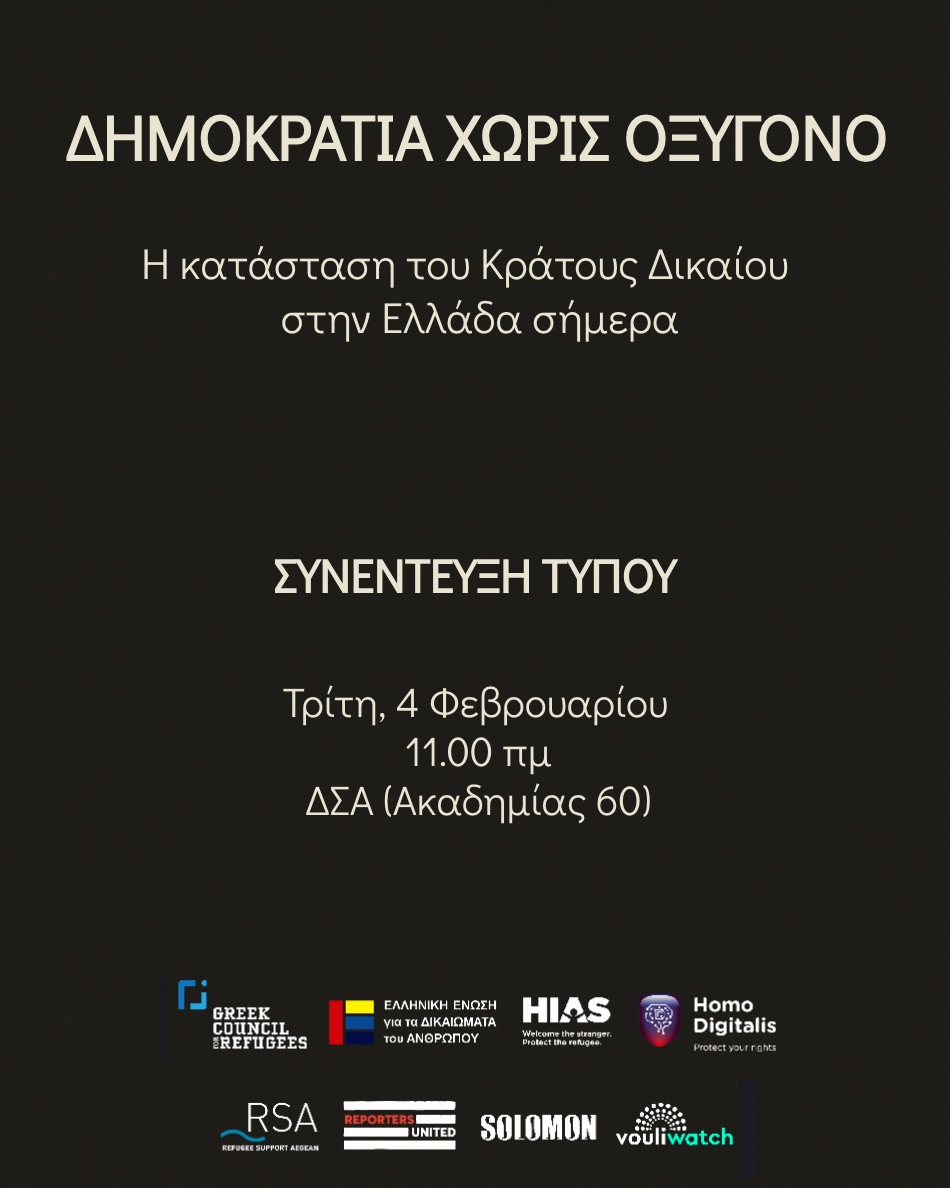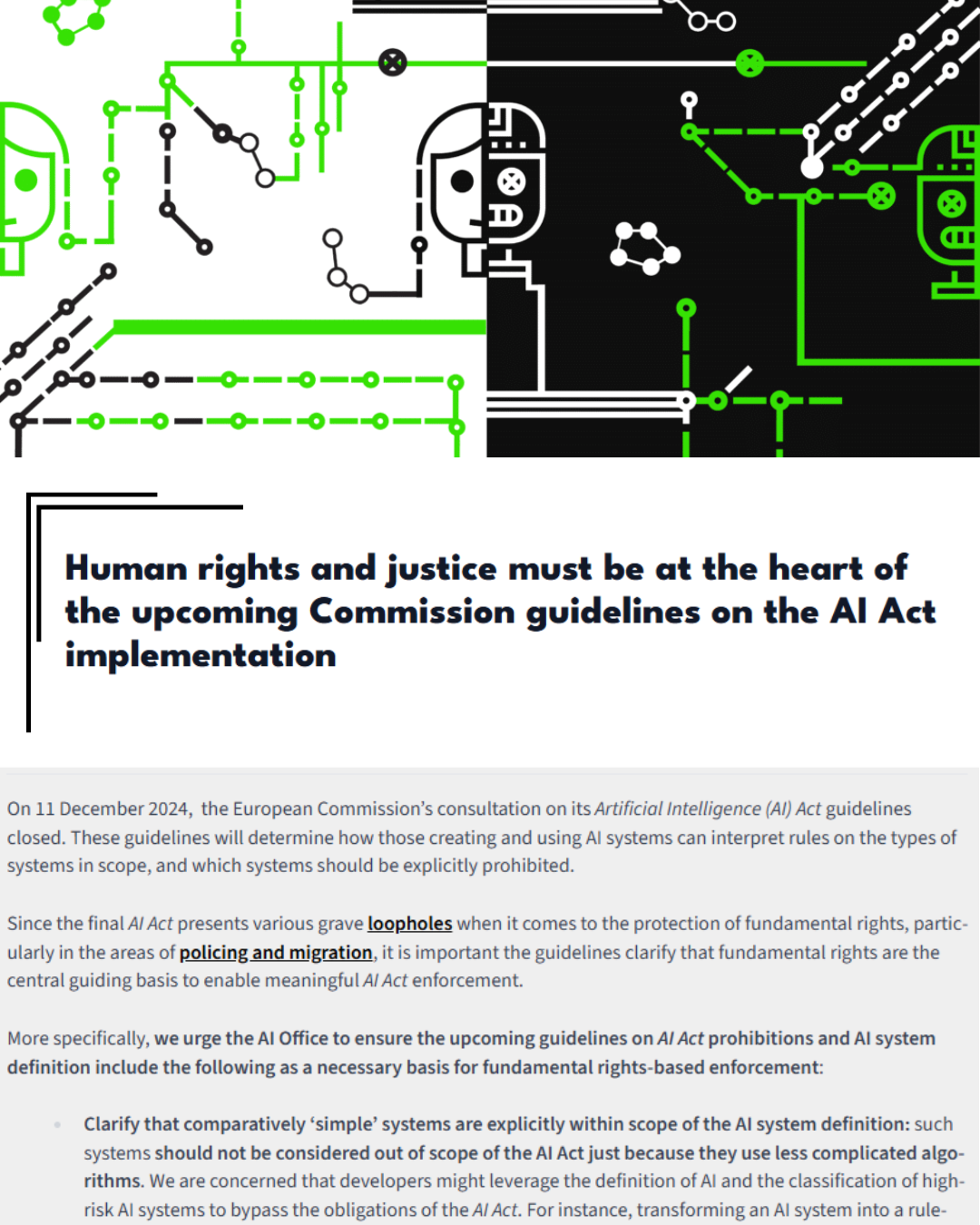Article 77 of the AI Act: 6 months after the designation of the Fundamental Rights Authorities
On the first official deadline set by the Artificial Intelligence Regulation (AI Act), it required member states to appoint one or more authorities in accordance with Article 77 for the protection of fundamental rights by November 2, 2024.
Today, May 2, 2025 — six months after the deadline — 25 out of the 27 European countries have appointed a total of 210 authorities, a number that seems staggering and at the same time sends a strong message about how seriously these countries take the issue of fundamental rights. But does it reflect reality?
With this brief study, we aim to provide answers to the following questions:
-
What is the purpose of Article 77 of the AI Regulation?
-
Which authorities have been appointed by the member states to date?
-
What powers does the AI Regulation actually grant to these regulatory authorities, and what obligations arise from Article 78 of the AI Regulation regarding the confidentiality of information?
-
Who are the four national authorities that have taken on this role, what are their existing and new powers under the AI Regulation?
Through a case study, our Director on Fundamental Rights and AI, Lamprini Gyftokosta, attempts to explore how these authorities will cooperate, while also raising some questions that will undoubtedly concern us over time.
You can read our study here (EL).
We publish our 4th Study on the AI ACT – Comparative overview of the provisions on the rights of affected individuals
Today, April 11, 2025, Homo Digitalis publishes its fourth study on the provisions of Regulation 2024/1689 on Artificial Intelligence (AI), widely known as the AI Act.
This study focuses on the right to explanation and the right of individuals not to be subject to automated decision-making.
Specifically, the use of artificial intelligence systems for making automated decisions is continuously expanding in both the public and private sectors, with significant impacts on the individuals subjected to them.
Therefore, this study examines the legal remedies available to individuals affected by decisions made through the use of AI. The analysis focuses on the right to an explanation of individual decision-making as provided in Article 86 of Regulation 2024/1689. However, since the protection of affected individuals is not limited solely to these provisions, the analysis extends to the right to contest individual decision-making, which—under appropriate interpretation—is based on Article 22 of Regulation 2016/679, known as the GDPR.
The study’s authors are two distinguished legal professionals and volunteer members of Homo Digitalis: Maria-Evangelia Konstantopoulou and Stratygia-Danai Skevi (listed alphabetically).
You can read our 4th study here.
We remind you that we have published three previous studies on Regulation 2024/1689 and its transposition into the Greek legal order: in October (impact assessment on fundamental rights), November (AI governance and competent supervisory authorities), and December (prohibited practices) of 2024, respectively.
This intensive effort aims to contribute constructively to the public dialogue in Greece and at the EU level in the field of artificial intelligence, and it is the result of significant support from the European Artificial Intelligence & Society Fund.
Read the Pocket Guide on Protecting Your Privacy During Protests
Today, Friday, February 28, marks two years since the Tempi train tragedy. Strikes and work stoppages have been organized across Greece and abroad to honor the memory of the 57 victims, demand justice, and hold those responsible accountable.
But what about your devices and personal data? How can you take steps to protect them during a protest?
Homo Digitalis, in collaboration with Software Makers, a nonprofit organization based in Heraklion, Crete, has translated and adapted the Electronic Frontier Foundation’s (EFF) Pocket Guide to Greek legal and practical realities. The guide provides essential steps to take before, during, and after a protest to help you safeguard both yourself and your data.
We stand in solidarity and offer our unwavering support!
The guide is available for download and printing here.
The Protect Not Surveil coalition publishes its report on the Europol Regulation
Today, the #ProtectNotSurveil coalition, in which Homo Digitalis serves as a member, launches its report on the Europol Regulation and calls for the full rejection of the European Commission’s proposal.
The Europol Regulation inadvertently supports the business model of smugglers while criminalising migration.
Crucially, the Europol Regulation:
- expands Europol’s surveillance capacity beyond its mandate under the pretext of fighting ‘migrant smuggling’, giving Europol new powers “in relation to all crimes for which it is competent”;
- The EDPS has already raised concerns that the file poses significant risks to the data and privacy rights of migrants, allowing mass data collection and sharing between Member States and EU agencies with known human rights violations (Frontex), as well as third countries without any legal basis for data sharing with the EU;
- The proposal is unsafe and unsubstantiated, presented without a proper impact assessment and based on false claims that smugglers pose the greatest threat to the safety of migrants (UN report);
- Millions in EU public funds will be wasted on Europol’s new activities for a false solution to migration management that simply will not work.
A summary of our position was also published in EUobserver. The full report is available here.
Press Release DEMOCRACY WITH NO AIR The State of the Rule of Law in Greece Today
On Tuesday 4 February, a Press Conference on the current state of the Rule of Law in Greece was successfully held at the Athens Bar Association with a significant turnout. The event was organised by the independent organisations Greek Council for Refugees (GCR), Hellenic League for Human Rights (HLHR), HIAS Greece, Homo Digitalis, Refugee Support Aegean (RSA), Reporters United, Solomon, and Vouliwatch.
You can watch the Press Conference here.
We warmly thank omniatv for organising and hosting the event.
The event was moderated by journalist Natasa Giamali. Representatives of the collaborating organisations presented the main points of the joint report submitted for the third consecutive year to the European Commission on the Rule of Law in Greece in 2024. This submission is part of the Commission’s annual review of national systems.
The speakers emphasised the key systemic issues undermining the Rule of Law in Greece. These issues, coupled with the growing authoritarianism in politics and attacks on human rights, cast a dark shadow over democracy, posing significant threats.
The urgency of the organisations’ call to the European Commission was also highlighted, pressing a shift in its approach and the need to focus not on the state’s “commitments” or “intentions” but on the accurate depiction of the situation in the country. Systematic violations of the fundamental principles of the Rule of Law must not be treated as isolated incidents.
Alexandros Mantzoutsos, Counselor and former Vice President of the Athens Bar Association, delivered a brief greeting.
Key presentations of the report
Stefanos Loukopoulos, Director of Vouliwatch:
“When the State itself undermines principles, procedures, and institutional counterweights through authoritarianism, impunity, and legal inconsistency, it fuels citizens’ distrust in institutions and leads, with mathematical certainty, to societal authoritarianism, with incalculable consequences for the future of Democracy.”
Minos Mouzourakis, lawyer at Refugee Support Aegean (RSA):
“There is a common thread connecting the Tempi train crash, the Pylos shipwreck, the wiretapping of politicians and journalists, the violent disappearances of refugees in Evros and the Aegean, and police brutality: the inability of the Greek justice system to fulfil its duty to attribute responsibility for arbitrariness and criminal offences perpetrated by the state.”
Additional statements from representatives of the other organisations
Alexandros Konstantinou, Lawyer, Greek Council for Refugees (GCR):
“Recently, the European Court of Human Rights found for the first time the ineffectiveness of the Greek criminal justice system in investigating pushback cases (A.R.E. v. Greece, Judgment of 7 January 2025). These cases, involving unlawful actions by state authorities, strike at the core of the Rule of Law. This finding by the Court comes at a time when issues of accountability and justice are central to public discourse and should seriously concern all relevant state bodies, including the Greek Judiciary.”
Elli Kriona-Saranti, Lawyer, HIAS Greece:
“The trend of abusive criminalisation of migrants, human rights defenders and lawyers as smugglers persists, despite continued objections from national, international and European human rights bodies.”
Thodoris Chondrogiannos, Journalist, Reporters United:
“The wiretapping scandal highlights the systemic flaws in the Rule of Law amidst systematic violations of the constitutionally guaranteed confidentiality of communications: Government attacks against the President of ADAE, judicial harassment of its members, the violation of the enhanced majority requirement of the Conference of Presidents of Parliament (⅗) for replacing ADAE members and preventing sanctions against the National Intelligence Service (EYP), the obstruction of investigating the joint EYP-Predator center, and the ‘legalisation’ of surveillance against ministers, politicians, journalists, and military officials, the violation of the obligation of EYP to immediately inform ADAE, and lawsuits against journalists.”
Danai Maragoudaki, Journalist, Solomon:
“The excessive concentration of major media outlets in the hands of a few powerful business-people, the interdependence of the media, the state, and the banks, and the inability of regulatory authorities to ensure the necessary level of transparency create a suffocating operating environment that undermines not only pluralism but democracy as a whole in the country.”
Katerina Pournara, Lawyer, Vice President of the Hellenic League for Human Rights (HLHR):
“In a period when trust in democratic institutions is shaken by incidents such as the Tempi train crash and the Pylos shipwreck, unreasonable and unlawful police violence not only threatens individual freedoms but also undermines democracy, fostering the authoritarianism of state institutions.”
Lamprini Gyftokosta, Director of Human Rights & Artificial Intelligence, Homo Digitalis:
“The protection of personal data is a fundamental right and a critical issue for democracy and transparency in our country. The fines imposed by the Data Protection Authority, amounting to €775,000 on three Ministries in 2024 alone, highlight the non-compliance of state bodies with existing legislation, undermining the Rule of Law and deepening citizens’ mistrust in institutions.”
| EXECUTIVE SUMMARY |
| FULL REPORT |
Invitation to Press Conference: DEMOCRACY WITH NO AIR: The State of the Rule of Law in Greece Today
Illegal pushbacks, police violence, Pylos shipwreck, wiretapping scandal, Tempi train crash, absence of accountability and delivery of justice, poor law-making, “omnibus” legislation, constant and irrelevant legislative amendments, shrinking press freedom, attacks and lawsuits against journalists, concentration of media ownership, state breaches of personal data, corruption, lack of transparency in gifts to political figures and ministerial staff…
These are just some of the critical issues affecting the Rule of Law in Greece today. At a time when authoritarian politics, the re-election of Donald Trump, the rise of the far-right, growing social inequality, the dominance of populism in public discourse and attacks on human rights cast a dark shadow over democracy.
In light of these developments and the ongoing weakening of institutions in Greece, Greek Civil Society leads a pressing fight to safeguard the Rule of Law and to strengthen transparency and accountability.
Independent organisations Greek Council for Refugees (GCR), Hellenic League for Human Rights (HLHR), HIAS Greece, Homo Digitalis, Refugee Support Aegean (RSA), Reporters United, Solomon, and Vouliwatch, submitted for a third consecutive year a joint report to the European Commission on the Rule of Law in Greece in 2024, as part of the annual monitoring of national systems.
We demand a clear shift in the European Commission’s approach, focusing not on “commitments” or “intentions” of the state but on an accurate depiction of the situation in the country. Systematic violations of fundamental principles of the Rule of Law cannot be treated as isolated incidents.
We invite you to the Press Conference, which will take place on Tuesday 4 February at 11:00 a.m. at the Athens Bar Association. During the event, we will present our contribution and publish the report we submitted to the European Commission.
SPEAKERS
A welcome address will be delivered by the Vice President of the Athens Bar Association, Alexandros Mantzoutsos.
The report will be presented by:
Stefanos Loukopoulos | Vouliwatch
Minos Mouzourakis | RSA
Short interventions by:
- Lambrini Gyftokosta | Homo Digitalis
- Elli Kriona-Saranti | HIAS
- Alexandros Konstantinou | GCR
- Danai Maragoudaki | Solomon
- Katerina Pournara | HLHR
- Thodoris Chondrogiannos | Reporters United
The event will be moderated by journalist Natasa Giamali (MEGA TV).
Tuesday, 4 February | 11:00 AM – 1:00 PM | Athens Bar Association (60 Akadimias St., Athens)
The Press Conference will be held in Greek.
We continue our participation in the Accelerator program of HIGGS
We continue our participation in the Accelerator program of HIGGS. The team of Homo Digitalis has been participating in the Accelerator program of HIGGS since October 2024, and now the second cycle of intensive seminars is starting with the aim of training us to improve our organizational structures as well as the management of our operations.
Specifically, the Accelerator program helps us learn, improve, and shape a better strategy for our future. The opportunity to participate in this program gives us access to high-level information that will help us improve the management and actions of Homo Digitalis, as well as the chance to develop a unique network of contacts with other organizations in the public sector and experts in the field!
Joint Statement on the Upcoming European Commission Guidelines on Prohibited Practices of the AI Act
We are publishing a joint statement on the upcoming European Commission Guidelines on Prohibited Practices of the AI Act.
On December 11, 2024, the European Commission completed its public consultation on the interpretation of the definition of an AI system and on prohibited AI practices, in accordance with the provisions of Regulation 2024/1689 (AI Act). Homo Digitalis participated in the related process.
In the context of the issuance of the expected guidelines by the Commission, concerns remain about potential gaps that could jeopardize fundamental rights. For this reason, and together with more than 25 civil society organizations, academics, and other experts, we are issuing a statement today, urging the AI Office and the European Commission to ensure specific demands.
You can read our joint statement here.
Eleftherios Chelioudakis of Homo Digitalis as a Trainer in the 3rd OSCE ODIHR Training on Personal Data & Border Management
From December 4 to 6, Eleftherios Chelioudakis, our Co-founder and Executive Director, participated as a trainer in the third training session organized by the international organization OSCE, specifically its Office for Democratic Institutions and Human Rights (ODIHR) in Warsaw. The training explored the use of new technologies at international borders, as well as the risks and opportunities they pose for Human Rights.
In our five presentations, we focused on the technologies used at borders, the Human Rights impacted by these uses, the provisions of the GDPR and Directive 2016/680 LED, the significant decision by the Hellenic Data Protection Authority (HDPA) regarding the “KENTAYROS” and “YPERION” systems, as well as technical tools that human rights defenders can use in their work!
We extend our heartfelt thanks to the participants for their dynamic presence, to the team of outstanding trainers Nikola Kovačević, Djordje Alempijevic, and Arancha Garcia del Soto for their knowledge and expertise, and to the organizing team, Lola Girard and Veronica Grazzi, for their impeccable organization and contributions. It is a great honor for us to participate!
You can learn more here.

